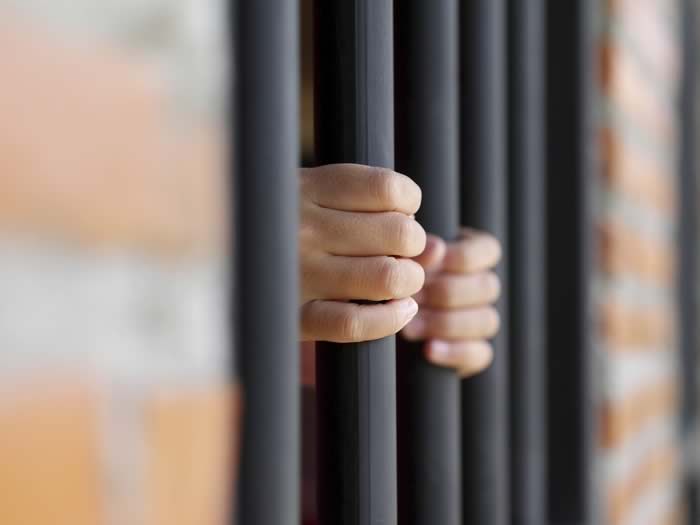Readings – Hebrews 10: 11-18
Mark.
13:1-8
Both our readings envisage some sort of gathering of life, with a judgement at its end. It’s a dangerous exercise this – anticipating a violent apotheosis to history. There is a warning in Mark’s gospel against people who enjoy a doom-laden message, taking over from God a province that can only belong to him. I think it’s a difficult passage to look at on its own, so I am not going to. I am more interested in the passage from the letter to the Hebrews and the vision there of a law written in the heart and mind rather than in a legal code. The balance between law and grace, hinted at in the O.T. is made explicit in the gospels, as well as being a major theme of Paul’s theology. What comes first, Paul asked himself – grace or law? And grace – always grace – was his answer.
That’s where we begin – and end – whenever we talk about crime and punishment.
Christians have always had a concern for the law breaker and for how he or she is dealt with. Jesus said that when his friends cared for a prisoner they were caring for him. ‘When did we see you in prison?’ they said. ‘Visit a prisoner’, he said, ‘and you have visited me’. The whole probation system has its origin in Christian ministry, and many prison visitors are people of Christian belief and of other faiths too. If the division between two ideas of the gospel : one of personal salvation and the other a social gospel is shown as the nonsense it is, nowhere is that more clearly shown in this commitment.
The welfare of prisoners and the hope of their rehabilitation is a longstanding Christian intention.
But it’s hard to have sympathy for prisoners. Some of them are in prison for the most appalling and increasingly violent crimes, or deserve to be as recent revelations of child abuse suggest. There are some very nasty people indeed who are – many people think – justifiably banged up behind steel doors, as a punishment and for the protection of their possible victims. For ever, in some cases. There are stories of them having a cushy time, getting out too soon, getting back into prison too quickly. Politicians vie for being hard-liners on crime, and the judiciary watch their legal parameters with increasing anxiety as the Home Office fears there may be terrorists around every street corner. And yet prisons are full to overcrowding, efforts to educate them are minimal, and when released they are often totally unprepared for living independently. Figures have gone down this year but there were still 86,105 people in prison last month. 412 of them were children in secure accommodation. We have the biggest prison population of any European country.
For six years I was a Free Church Prison Chaplain, and some twelve years earlier, for five weeks I was a prisoner. Having completed my national service I became aware of the argument for Christian pacifism. Called for reserve training, I refused to put on uniform because of my new convictions, and was accordingly court martialed, and imprisoned in Wormwood Scrubs. It was much in my mind when later, and now a chaplain, I got locked up again – though this time with my own set of keys.
A few things to say briefly –
1. However many repeats of ‘Porridge’ we watch, prison is no fun. It’s demeaning, and turns grown people into naughty children; you are locked up in a small space and locked out of the real world. Nothing can ever compensate for the loss of liberty.
2. Prison is rarely an answer to crime but can be merely a temporary cessation of criminal behaviour. Most prisoners at Nottingham where I was Chaplain came back to prison after their release. Ken whom we knew well had been charged with as many offences as he had lived his forty years. When he was released he got a job (always a problem) as a long distance lorry driver and several times stayed with us overnight en route, and then we heard no more from him. We often wonder what happened and hoped he hadn’t got into trouble again. If prison as punishment remains some sort of deterrent, prison as the transformation of a life is mostly a miserable failure. Prison often doesn’t ‘work’.
3. There are some nasty people in jail who have committed appalling crimes, and those crimes have increased in wickedness in the last 30 years or so– but in my very limited experience and with men imprisoned for comparatively minor offences, I only ever met one who was really evil; the rest in the main were inadequate people who had never made it.
4. There is a stratum of society which exists alongside the rest of us. Not so much the ‘criminal element’ but an estranged and insular culture that is as locked out of the rest of society as are those of its members who actually end up in jail. No one knows what to do about that. A government scheme for reducing poverty is one way; criminalising anyone who will not conform can be counter productive.
5. I have read that mental health disorders affect 70% of male and 72% of female prisoners. And that suggests that for such people there may be little common ground on which to base a new life. It isn’t the reason for anti-social behaviour any more than poor housing, bad education, the absence of good role models is; but certainly it is likely to be a contributory cause.
6. A very high proportion of prisoners have been in care homes since childhood, already institutionalised, they merely transfer to a different institution.
But this is Sunday and our opportunity as people of Christian faith to reflect as I hope we are doing now, on a burning social issue. What are we to say to each other, to the politician, and to God as we think of the thousands who are in prison today?
To each other, we need to understand this relationship of grace and law. Law is the cement of society but never its soul. There have to be rules but they do nothing for the development of true community unless there is also a gracious and forgiving spirit and a belief in the value and potential of every person, and a high conception of the good society. Instant judgements may satisfy the moment but do little to create alternative ways in which a nation can live in justice and peace. Christians need to be amongst those who believe in the possibilities of rehabilitation and redemption, however many disappointments there may be on the way. We follow a man who faced the human predicament, was continually disappointed by it, but who persevered in following his way, speaking his truth and ultimately giving his life.
To the politicians what the tabloids call ‘public opinion’ may often be the lowest common multiple of morality and the temptation to appeal to the worst – the vindictive, the self-righteous, the selfishness – of our nature which should be resisted. That’s difficult when you have power only because people have voted for you, and they may stop doing that if you ask for their generosity and compassion. But if you don’t do that, you are likely to create a spiral of ugliness. There are better ways of responding to and helping to create the commonwealth of our life.
To God? Well, we will say it in our prayers – we need help in understanding the unconditional love that God has for all people, and guidance as to how we should practice such love. That glib phrase about hating the sin but loving the sinner has some sense to it. Our tradition is that there is such a thing or a condition as sin – rebellion against God or against our best nature, however you may wish to express it – equally, there is the reality of forgiveness that can follow an admission of guilt and enable a new start. So much of our faith from God is about beginning again.
God help us to be people of hope; positive in the pursuit of goodness and wellbeing, for ourselves and with our neighbours, whoever and wherever they may be.





